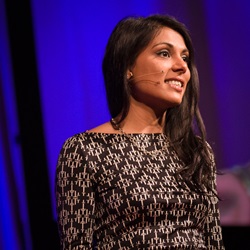Senior Fellows
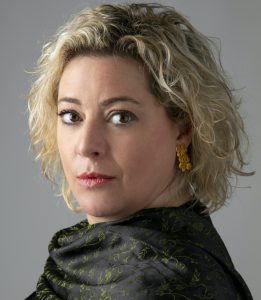
Dr. Daryl Collins is the CEO and Founder of Decodis (www.decodis.com), an AI-driven social research company. Over the past 25 years, Dr. Collins has built a broad portfolio of work with corporates, foundations, investors, and governments. She is the author of the acclaimed Portfolios of the Poor and a pioneer working at the intersection of finance and social behavior.
Prior to founding Decodis, Dr. Collins spent ten years as Managing Director and CEO of BFA Global, a financial inclusion consulting practice. The early part of her career was spent in New York as a financial market economist and in South Africa as a portfolio manager and Professor of Finance at the University of Cape Town.
She holds a B.Sc. and an M.Sc. in economics from the London School of Economics and a Ph.D. from New York University.
 Antara Dev Sen is an editor, social commentator and analyst working towards promoting democratic freedoms, social justice and free, truthful dialogue through the media and the social sector. She is Managing Trustee of Pratichi (India) Trust, which conducts primary research and policy interventions in education, healthcare, gender and the environment. She was founder editor of The Little Magazine, the pioneering independent journal that examined socio-political concerns and democratic values through the emerging ideas and literatures of South Asia. She has been a senior editor with The Hindustan Times and The Indian Express in New Delhi, and Guest Editor of Indian Literature, the journal of Sahitya Akademi, India’s national academy of letters. She has had very popular weekly and fortnightly columns in ten of the most influential Indian newspapers and magazines. She is also a literary translator and critic.
Antara Dev Sen is an editor, social commentator and analyst working towards promoting democratic freedoms, social justice and free, truthful dialogue through the media and the social sector. She is Managing Trustee of Pratichi (India) Trust, which conducts primary research and policy interventions in education, healthcare, gender and the environment. She was founder editor of The Little Magazine, the pioneering independent journal that examined socio-political concerns and democratic values through the emerging ideas and literatures of South Asia. She has been a senior editor with The Hindustan Times and The Indian Express in New Delhi, and Guest Editor of Indian Literature, the journal of Sahitya Akademi, India’s national academy of letters. She has had very popular weekly and fortnightly columns in ten of the most influential Indian newspapers and magazines. She is also a literary translator and critic.
Antara has a Masters in Philosophy from Jadavpur University, Kolkata, India. She also studied American Literature, Film Studies and Women’s Studies at Smith College, USA. Later she was a Reuter Fellow at Oxford University, UK. Among the several positions she has held are Member, Parliamentary Experts Committee, Government of India; Member, Symi Symposium, Greece; Chair, International Jury, DSC Prize for South Asian Literature; Advisor, Adivasi Academy (the institute for indigenous cultures), India; and President, Soi: Creative Women’s Association of Bengal, India.
 Dr. Evan Easton-Calabria is a Senior Researcher at the Feinstein International Center, Tufts University, and a Research Associate at the Refugee Studies Centre, University of Oxford. She has conducted research with refugees and displaced communities for over a decade, with a focus on livelihoods and self-reliance. This includes work at the intersection of climate, conflict, and vulnerable populations, notably on anticipatory action and localization. She has led major research projects on humanitarian and development programming for protracted and multiple crises, primarily on the lives and livelihoods of displaced populations in Eastern and the Horn of Africa. She holds additional expertise in climate-induced migration, child migration, and early warning systems in fragile- and conflict-affected contexts through her work with the Red Cross Climate Centre and United Nations agencies.
Dr. Evan Easton-Calabria is a Senior Researcher at the Feinstein International Center, Tufts University, and a Research Associate at the Refugee Studies Centre, University of Oxford. She has conducted research with refugees and displaced communities for over a decade, with a focus on livelihoods and self-reliance. This includes work at the intersection of climate, conflict, and vulnerable populations, notably on anticipatory action and localization. She has led major research projects on humanitarian and development programming for protracted and multiple crises, primarily on the lives and livelihoods of displaced populations in Eastern and the Horn of Africa. She holds additional expertise in climate-induced migration, child migration, and early warning systems in fragile- and conflict-affected contexts through her work with the Red Cross Climate Centre and United Nations agencies.
She previously worked for five years at the Refugee Studies Centre, University of Oxford, where she also holds a Masters and PhD in International Development. She is the author of over 75 publications aimed at policy, practitioner, and academic audiences. This includes two books, Refugees, Self-Reliance, Development: A critical history (Bristol University Press, 2022) and The Global Governed: Refugees as providers of protection and assistance (Cambridge University Press, 2020).
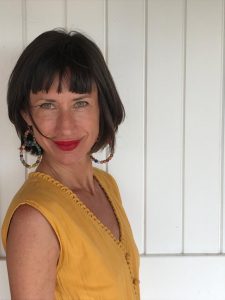 Dr. Kimberly Howe is a researcher concerned with the well-being of war-affected populations from a gendered perspective. She has been researching the Syrian civil war since 2013, including the development of Syrian civil society, and how war-affected civilians rely on social connection to adapt and cope with protracted conflict. She has explored the impact of external democracy promotion initiatives on the lives of Syrians, as well as the factors that support the rise of credible rebel governance. Most recently, Dr. Howe is studying the challenges and opportunities faced by adolescent girls in displacement in South Sudan and Northern Iraq, including the practice of early marriage. Her work has also focused on patterns of violence after the cessation of hostilities and peacebuilding initiatives, as well as the localization of aid in a variety of countries.
Dr. Kimberly Howe is a researcher concerned with the well-being of war-affected populations from a gendered perspective. She has been researching the Syrian civil war since 2013, including the development of Syrian civil society, and how war-affected civilians rely on social connection to adapt and cope with protracted conflict. She has explored the impact of external democracy promotion initiatives on the lives of Syrians, as well as the factors that support the rise of credible rebel governance. Most recently, Dr. Howe is studying the challenges and opportunities faced by adolescent girls in displacement in South Sudan and Northern Iraq, including the practice of early marriage. Her work has also focused on patterns of violence after the cessation of hostilities and peacebuilding initiatives, as well as the localization of aid in a variety of countries.
Dr. Howe has received fellowships and awards from the United States Institute of Peace, Harvard Medical and Law Schools, and the Marie-Curie Sklodowska Action of the European Union. She is also a trained psychotherapist in trauma and brings this perspective to research design and engagement with participants. Dr. Howe is currently an Assistant Research Professor at the Friedman School and a Research Director on Conflict and Governance at the Feinstein International Center at Tufts University.
Learn more about Dr. Howe’s work in her Senior Fellow Spotlight.
 Pratik Kanjilal is a commentator and literary translator with multiple interests who works at the intersection of media and academics. His widely-read oped column ‘Speakeasy’, which now appears in The New Indian Express, has been in print for 18 years. Until earlier this year, he edited the daily online newsletter The India Cable, which he had co-founded for the New Delhi-based news website The Wire.
Pratik Kanjilal is a commentator and literary translator with multiple interests who works at the intersection of media and academics. His widely-read oped column ‘Speakeasy’, which now appears in The New Indian Express, has been in print for 18 years. Until earlier this year, he edited the daily online newsletter The India Cable, which he had co-founded for the New Delhi-based news website The Wire.
Pratik uses media the old-fashioned way, not only to inform, but also to educate. As an early internet adopter – in the 1990s, he headed the online wing of The Indian Express media group, had the first column in the Indian mainstream press on internet technology and New Media, and won the first New York University Prize for Hyperfiction. He also wrote The Penguin Guide to Using the Internet in India. With an interest in literature, politics, society, the economy and science and technology, he has been Literary Editor and leader writer of The Indian Express and worked with business dailies The Economic Times and Business Standard, and the pioneering science and environment journal Down to Earth. He has been a columnist with The Indian Express, Hindustan Times, The Economic Times, the Free Press Journal and Time Out.
In 2000, Pratik co-founded The Little Magazine, a print journal which addressed social and political issues through literature in translation from over 20 languages of South Asia. His books of translated fiction include The Last Wilderness (by Nirmal Verma, 2002), Colours Caught in Mist (by Govind Mishra, 2015), A Bouquet of Dead Flowers: Stories (by Swadesh Deepak, translation with others, 2024), Court Martial and Other Plays (by Swadesh Deepak, translation with others, 2024).
Pratik was Translator in Residence at the British Centre for Literary Translation, University of East Anglia, UK. And he has received India’s national award for translation, the Sahitya Akademi Translation Prize. He is currently examining vulnerabilities and human security concerns in South Asia through its literatures. His present interests include the South Asian diaspora in the US and perceptions of myth, lies and reality in the age of fake news.
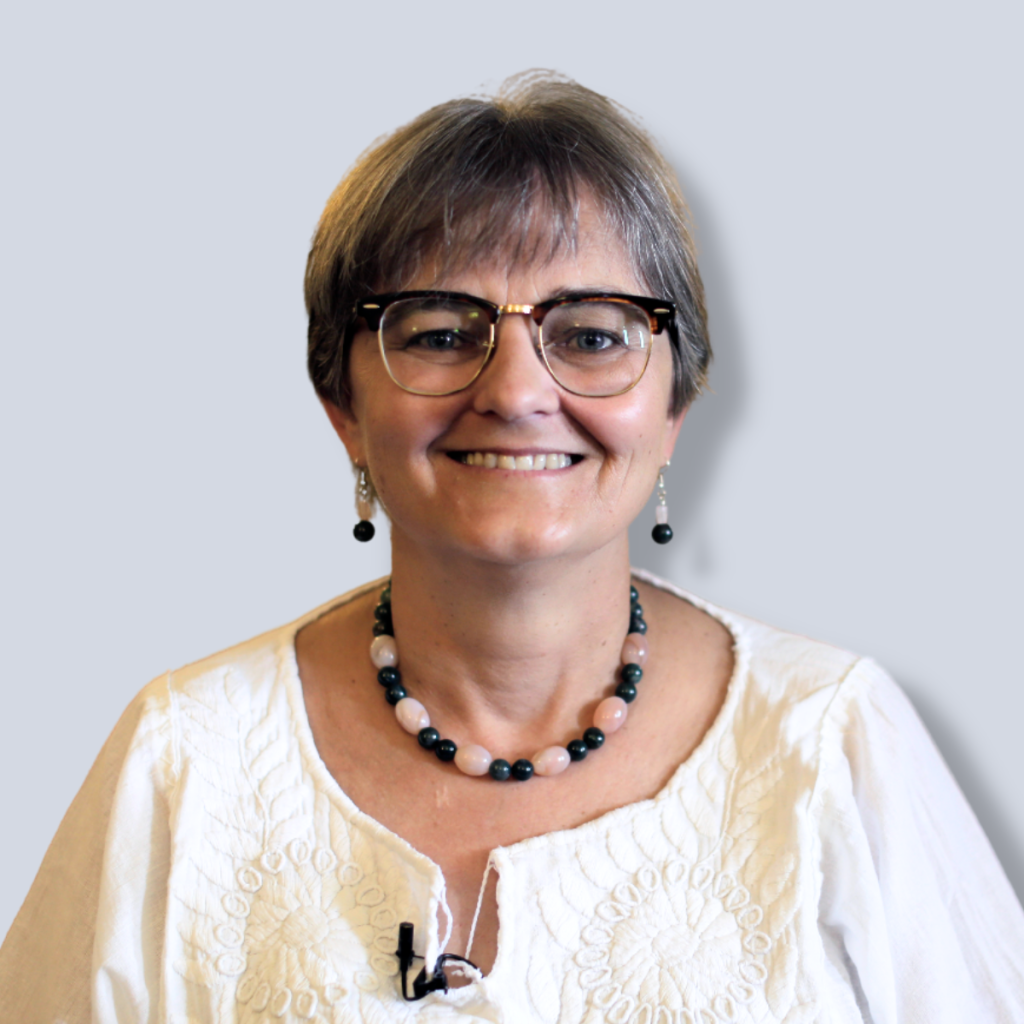 Joy Olson, Executive Director of the Washington Office on Latin America (WOLA) from 2003-2016, is a leading expert on human rights and U.S. policy toward Latin America. Under Ms. Olson’s direction, WOLA pioneered new approaches to human rights advocacy, focusing on the underlying causes of injustice, inequality, and violence. Joy’s special expertise is in the area of military and security policy. She has been a longtime advocate for greater transparency of military programs in Latin America. She co-founded the Just the Facts project, which makes information about U.S. military policy in Latin America publicly accessible. For more than a decade, she has co-authored an annual study on trends in U.S. security assistance, including the recent report Waiting for Change.
Joy Olson, Executive Director of the Washington Office on Latin America (WOLA) from 2003-2016, is a leading expert on human rights and U.S. policy toward Latin America. Under Ms. Olson’s direction, WOLA pioneered new approaches to human rights advocacy, focusing on the underlying causes of injustice, inequality, and violence. Joy’s special expertise is in the area of military and security policy. She has been a longtime advocate for greater transparency of military programs in Latin America. She co-founded the Just the Facts project, which makes information about U.S. military policy in Latin America publicly accessible. For more than a decade, she has co-authored an annual study on trends in U.S. security assistance, including the recent report Waiting for Change.
Joy has testified before Congress on Latin America policy issues ranging from human rights in Mexico to drug policy to the problems of poverty and inequality in the region. She is a frequent commentator in the media, including CNN, CNN Español, the BBC, the Lehrer News Hour, National Public Radio, and an array of national and international news outlets.
Prior to joining WOLA, Joy directed the Latin America Working Group (LAWG), a coalition of sixty non-governmental organizations working to promote peaceful and just U.S. foreign policy toward Latin America. Her many accomplishments include leading NGO efforts to increase U.S. funding for Central American peace accords implementation and a successful advocacy effort to lift the ban on food and medicine sales to Cuba. In the 1980s she worked on immigration and refugees issues, and developed legislation to suspend the deportation of Salvadoran refugees from the United States.
Joy earned a Masters in Latin American Studies from the National Autonomous University of Mexico, following two years’ work in community development in Honduras.
Learn more about Joy’s work in her Senior Fellow Spotlight.
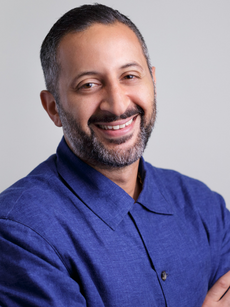 Samer Saliba has 14 years of experience helping over 50 cities become more inclusive of migrant, displaced, and marginalized people. As the lead urban technical advisor at the International Rescue Committee, Samer worked directly with the cities of Amman, Athens, Milan, and Kampala, among others, to implement and institutionalize inclusive projects, policies, and plans within city government structures. Samer has produced countless knowledge products, publications, and practitioner resources and has fundraised tens of millions of USD to deliver programs in the cities most adversely impacted by migration, displacement, and conflict. These initiatives include area-based approaches to conflict and displacement in Maiduguri, multi-year programs to support the self-reliance of urban refugees in urban East Africa, peacebuilding programs between warring cities in Libya, and inclusive resilience strategies in several of the Rockefeller Foundation’s 100 Resilient Cities.
Samer Saliba has 14 years of experience helping over 50 cities become more inclusive of migrant, displaced, and marginalized people. As the lead urban technical advisor at the International Rescue Committee, Samer worked directly with the cities of Amman, Athens, Milan, and Kampala, among others, to implement and institutionalize inclusive projects, policies, and plans within city government structures. Samer has produced countless knowledge products, publications, and practitioner resources and has fundraised tens of millions of USD to deliver programs in the cities most adversely impacted by migration, displacement, and conflict. These initiatives include area-based approaches to conflict and displacement in Maiduguri, multi-year programs to support the self-reliance of urban refugees in urban East Africa, peacebuilding programs between warring cities in Libya, and inclusive resilience strategies in several of the Rockefeller Foundation’s 100 Resilient Cities.
A respected practitioner in the space, Samer has also played a key role in shifting power in humanitarian response from international to local actors. As the Director of City Practice of the Mayors Migration Council (MMC), Samer oversees MMC’s suite of technical assistance programming that supports city leaders in designing and implementing local policies, plans, and projects that address the needs of refugees and migrants. A key aspect of this direct support is identifying and unlocking technical and financial resources for cities from international humanitarian and development actors. In managing the MMC’s Global Cities Fund for Migrants and Refugees, Samer grew the fund from a $1M seed investment to a $7.5M+ fund with a pipeline of over 25 city grantees directly supporting 25,000+ people across three thematic chapters.
Before working on migration and humanitarian issues, Samer served for seven years as an urban planner, directly working with at-risk communities in bolstering the resilience of New York City and cities throughout the Northeast United States. A Boston son of Lebanese immigrant parents, Samer has a BA in Urban Studies from Boston University, a Master of Urban Planning from NYU Wagner School of Public Service and is currently a PhD student at The New School.
Learn more about Samer’s work in his Senior Fellow Spotlight.
 Dr. Gerasimos Tsourapas is Professor of International Relations at the University of Glasgow and the Editor-in-Chief of Migration Studies. He is a scholar of migration, refugee, and diaspora politics, with a particular focus on how states in the Global South use cross-border mobility as a strategic resource. His work has helped shape key concepts in the field, including migration diplomacy, refugee rentierism, and migration interdependence, and his research draws on comparative fieldwork across the Middle East, North Africa, and South Asia.
Dr. Gerasimos Tsourapas is Professor of International Relations at the University of Glasgow and the Editor-in-Chief of Migration Studies. He is a scholar of migration, refugee, and diaspora politics, with a particular focus on how states in the Global South use cross-border mobility as a strategic resource. His work has helped shape key concepts in the field, including migration diplomacy, refugee rentierism, and migration interdependence, and his research draws on comparative fieldwork across the Middle East, North Africa, and South Asia.
Gerasimos is the author of The Politics of Migration in Modern Egypt: Strategies for Regime Survival in Autocracies (Cambridge University Press), which received the ENMISA Distinguished Book Award, and, more recently, Migration Diplomacy in the Middle East and North Africa (Manchester University Press). His scholarship has appeared in International Affairs, International Studies Quarterly, European Journal of International Relations, and other leading journals. His work has been recognized with awards from the American Political Science Association, the Middle East Studies Association, and the International Studies Association.
His research on transnational repression and migration diplomacy has informed the work of the UK Parliament, the European Commission, and the US Congress. He is currently Principal Investigator on a five-year European Research Council-funded project on the international politics of migration. Gerasimos holds degrees from Yale University, the London School of Economics and Political Science, and SOAS University of London, and has held visiting positions at Harvard University, the European University Institute, and the American University in Cairo.
 Jayshree Venkatesan, Senior Director, Consumer Protection & Strategic Industry Engagement. Jayshree leads the development and execution of the consumer protection research and influence strategy, contributing to CFI’s global portfolio. She also oversees the Responsible Finance Forum’s convening and influence model, building a community dedicated to addressing industry challenges in consumer protection and advancing the responsible finance agenda.
Jayshree Venkatesan, Senior Director, Consumer Protection & Strategic Industry Engagement. Jayshree leads the development and execution of the consumer protection research and influence strategy, contributing to CFI’s global portfolio. She also oversees the Responsible Finance Forum’s convening and influence model, building a community dedicated to addressing industry challenges in consumer protection and advancing the responsible finance agenda.
With two decades of experience spanning structured finance, innovative business models, consumer research, and policy influence, Jayshree has worked to advance financial inclusion and economic development globally. Before joining CFI, she spent nearly a decade as an independent consultant with institutions like CGAP, the World Bank, JICA, and ITAD, focusing on customer-centric business models and challenges faced by low-income consumers in accessing and using formal financial services. From 2009-2013, she was part of the founding team at IFMR (now Dvara Trust) in India where she led India’s first mezzanine fund for microfinance, which evolved into an alternate investment fund. Jayshree is also a senior policy fellow at the Leir Institute within the Fletcher School of Law and Diplomacy and has served as adjunct faculty at the Fletcher School of Law and Diplomacy, teaching decision analysis for business.
Jayshree is a recipient of the Chevening fellowship for leadership from the Foreign and Commonwealth Office, UK and completed the program at Kings College, London. She earned an MA in international relations from the Fletcher School of Law and Diplomacy, an MBA from Management Development Institute in Gurgaon, and an undergraduate degree in mathematics from Mumbai University.
Learn more about Jayshree’s work in her Senior Fellow Spotlight.
Past Senior Policy Fellows
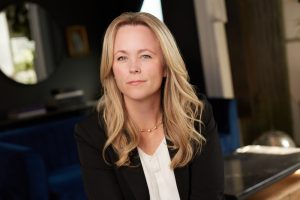 Cheyanne Scharbatke-Church is a scholar-practitioner with a lifelong interest in governance processes that have run amuck. She has significant experience working on issues related to peacebuilding, governance, accountability and learning across the Balkans and West and East Africa. For fifteen years, Cheyanne taught program design, monitoring and evaluation in fragile contexts at the Fletcher School. Prior to that she was the Director of Evaluation for Search for Common Ground and Director of Policy at INCORE. As part of her consulting practice, she has had the privilege of working in an advisory capacity with a range of organizations such as ABA/ROLI, CDA, ICRC, IDRC, UN Peacebuilding Fund and the US State Department. She can be commonly found in the Canadian Rockies with her fierce daughters and gem of a husband.
Cheyanne Scharbatke-Church is a scholar-practitioner with a lifelong interest in governance processes that have run amuck. She has significant experience working on issues related to peacebuilding, governance, accountability and learning across the Balkans and West and East Africa. For fifteen years, Cheyanne taught program design, monitoring and evaluation in fragile contexts at the Fletcher School. Prior to that she was the Director of Evaluation for Search for Common Ground and Director of Policy at INCORE. As part of her consulting practice, she has had the privilege of working in an advisory capacity with a range of organizations such as ABA/ROLI, CDA, ICRC, IDRC, UN Peacebuilding Fund and the US State Department. She can be commonly found in the Canadian Rockies with her fierce daughters and gem of a husband.
 George Baaré is a former World Bank social development practitioner and current Partner in Nordic Consulting Group Denmark. He is a human security practitioner at the interface between diplomacy and peace processes and related development programming, reviews, and evaluations. He has worked extensively on gender and masculinities in post-conflict reconstruction, including reintegration of ex-combatants, women, peace and security agendas, and refugee-host relations, with a specific focus on urban refugees. His current assignment focuses on fragility and resilience analysis and programming in sub-Saharan Africa. He is active in the Inner Development Goals initiative and is one of the founders of Leir’s Program in Human Security and Inner Development (PHUSID).
George Baaré is a former World Bank social development practitioner and current Partner in Nordic Consulting Group Denmark. He is a human security practitioner at the interface between diplomacy and peace processes and related development programming, reviews, and evaluations. He has worked extensively on gender and masculinities in post-conflict reconstruction, including reintegration of ex-combatants, women, peace and security agendas, and refugee-host relations, with a specific focus on urban refugees. His current assignment focuses on fragility and resilience analysis and programming in sub-Saharan Africa. He is active in the Inner Development Goals initiative and is one of the founders of Leir’s Program in Human Security and Inner Development (PHUSID).
Dr. Nahid Bhadelia is the founding director of BU Center for Emerging Infectious Diseases Policy and Research and an associate director of the National Emerging Infectious Diseases Laboratories (NEIDL), a state-of-the-art maximum containment research facility at BU. She is a board-certified infectious diseases physician and an internationally recognized leader in highly communicable and emerging infectious diseases (EIDs) with clinical, field, academic, and policy experience in pandemic preparedness and response.
Over the last decade, Dr. Bhadelia designed and served as the medical director of the Special Pathogens Unit (SPU), a medical unit designed to care for patients with highly communicable diseases, and a state designated Ebola Treatment Center. She has prior and ongoing experience in health system response to pathogens such as H1N1, Zika, Lassa fever, Marburg virus disease, and COVID-19 at the state, national, and global levels, including medical countermeasure evaluation, diagnostic positioning, infection control policy development, and healthcare worker training. Dr. Bhadelia serves on state, national, and interagency groups focused on biodefense priority setting, development of clinical care guidelines, and medical countermeasures research. She has served as a subject matter expert to the US Centers for Disease Control and Prevention, Department of Defense (DoD), and World Bank.
Dr. Bhadelia has experience with direct patient care, outbreak response, and medical countermeasures research during multiple Ebola virus disease outbreaks in West and East Africa. During the West African Ebola epidemic, she served as a clinician in several Ebola treatment units, working with the World Health Organization and Partners in Health. She currently serves as medical lead of a DoD-funded viral hemorrhagic fever research group in Uganda, entitled Joint Mobile Emerging Disease Intervention Clinical Capability (JMEDICC) program. Dr. Bhadelia codirects the National Institutes of Health’s Fogarty International Center–funded research training program in Liberia, entitled Boston University and University of Liberia Emerging and Epidemic Virus Research (BULEEVR). Her research focuses on global health security, as well as identification of safe and effective clinical interventions and infection control measures related to viral hemorrhagic fevers and other emerging infectious diseases.
She has publications in Nature, Science, New England Journal of Medicine and other prestigious journals, as well as in press including The Atlantic and Time magazines. Her work has been featured documentaries by National Geographic as well as NOVA. She is an NBC/MSNBC Medical contributor.
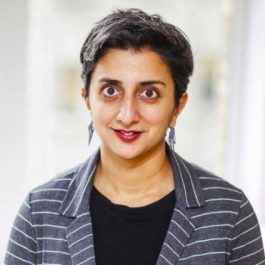 Dr. Radha Rajkotia is the Chief Research and Policy Officer at Innovations for Poverty Action (IPA). She is an experienced humanitarian and economic development professional, who combines expertise in strategy, operations, management, research, policy, and partnership development. She has worked in over 20 countries in Africa, Asia and the Middle East. She previously spent eleven years working at the International Rescue Committee, where she led the Economic Recovery and Development sector. At IPA, Dr. Rajkotia focuses on building a policy-relevant global research agenda and in turn, promoting the use of evidence in policies that aim to reduce poverty. She sits on the board of the Cash Learning Partnership (CALP) and the Center for Economic Opportunity, a US-based community development financial institution that specializes in loan products for refugees and low-income migrants. She also sits on the Board of Trustees for Asphaleia, a UK-based charity focused on the care and advancement of refugee and migrant youth.
Dr. Radha Rajkotia is the Chief Research and Policy Officer at Innovations for Poverty Action (IPA). She is an experienced humanitarian and economic development professional, who combines expertise in strategy, operations, management, research, policy, and partnership development. She has worked in over 20 countries in Africa, Asia and the Middle East. She previously spent eleven years working at the International Rescue Committee, where she led the Economic Recovery and Development sector. At IPA, Dr. Rajkotia focuses on building a policy-relevant global research agenda and in turn, promoting the use of evidence in policies that aim to reduce poverty. She sits on the board of the Cash Learning Partnership (CALP) and the Center for Economic Opportunity, a US-based community development financial institution that specializes in loan products for refugees and low-income migrants. She also sits on the Board of Trustees for Asphaleia, a UK-based charity focused on the care and advancement of refugee and migrant youth.
Dr. Rajkotia completed her postgraduate education at the University of Sussex, with a PhD in Refugee Studies (Geography), an MA in Migration Studies, and an MSc in Social Research Methods. She completed her Bachelor of Social Science in Political Science from the University of Birmingham.
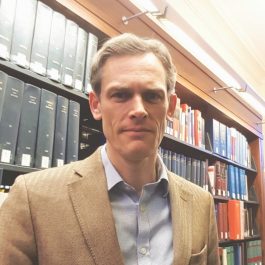 Matt Waldman specializes in high-level diplomacy and mediation in armed conflict. He is Special Advisor to the United Nations Special Envoy for Yemen, Director of the Center for Empathy in International Affairs, and an Associate Fellow of Chatham House – The Royal Institute of International Affairs. He has previously served as an advisor to: the UN Special Representative for Somalia (2016-2018), the UN Special Envoy for Syria (2014-2015) and the UN Special Representative for Afghanistan (2011-2012). He has also undertaken mediation work in the Middle East and Africa as a Senior Advisor at the European Institute of Peace and Special Advisor to Inter Mediate. Matt worked in Afghanistan between 2006 and 2012, and was based in Beirut between 2014 and 2018 to work on the Syria conflict.
Matt Waldman specializes in high-level diplomacy and mediation in armed conflict. He is Special Advisor to the United Nations Special Envoy for Yemen, Director of the Center for Empathy in International Affairs, and an Associate Fellow of Chatham House – The Royal Institute of International Affairs. He has previously served as an advisor to: the UN Special Representative for Somalia (2016-2018), the UN Special Envoy for Syria (2014-2015) and the UN Special Representative for Afghanistan (2011-2012). He has also undertaken mediation work in the Middle East and Africa as a Senior Advisor at the European Institute of Peace and Special Advisor to Inter Mediate. Matt worked in Afghanistan between 2006 and 2012, and was based in Beirut between 2014 and 2018 to work on the Syria conflict.
Matt was previously a Research Fellow at the Belfer Center for Science and International Affairs in Harvard University’s Kennedy School (2012-2014), which involved research on empathy and foreign policymaking, delivering lectures and publishing articles. He was also a Fellow at Harvard’s Carr Center for Human Rights and a Visiting Fellow at Clare College, Cambridge University.
Matt was Oxfam International’s Head of Policy in Afghanistan (2006-2009) and Co-Director of the Chatham House Opportunity in Crisis initiative on Afghanistan. He has also held senior foreign affairs positions in the UK and European parliaments. Originally, Matt trained as a UK lawyer with Norton Rose Fulbright and holds a master’s degree in human rights from the London School of Economics.
Matt’s publication is War and Peace in Somalia involving numerous conflict specialists was endorsed by UN Secretary-General António Guterres.
 Abdul Mohammed serves as Chief of Staff and Senior Political Advisor of the African Union High Level Implementation Panel (AUHIP) for Sudan and South Sudan, chaired by former President of South Africa, Thabo Mbeki. He was previously the Acting Director of UNAMID’s Political Department and Chairperson of the Darfur-Darfur Dialogue and Consultation. He also served as UNICEF’s Representative to the African Union.
Abdul Mohammed serves as Chief of Staff and Senior Political Advisor of the African Union High Level Implementation Panel (AUHIP) for Sudan and South Sudan, chaired by former President of South Africa, Thabo Mbeki. He was previously the Acting Director of UNAMID’s Political Department and Chairperson of the Darfur-Darfur Dialogue and Consultation. He also served as UNICEF’s Representative to the African Union.
Abdul was the founder and Executive Director of the Inter-Africa Group, a centre for dialogue on humanitarian, peace, and development issues in the Horn of Africa. Abdul has worked in various capacities for the World Council of Churches/Church World Service and served as Director of Relief and Emergencies for the Sudan Council of Churches. He has also been an advisor to the Prime Minister of Ethiopia on peace and reconciliation issues in the Horn of Africa. Over the last twenty-five years Abdul has worked in Ethiopia, Sudan and Kenya.
While at Fletcher, Abdul Mohammed assisted faculty involved in the Building State Legitimacy project, and gave a public lecture to Fletcher students on mediation practices and current conflicts in Africa.
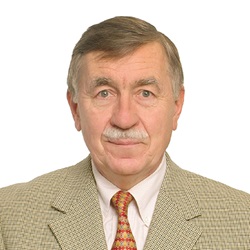 Dr. Vladimir Zhagora is a retired senior officer from the UN Department of Political Affairs. He has an extensive background in mediation, having participated in the negotiations on the settlement of crises in South Africa, Somalia, Democratic Republic of the Congo, Kenya, Uganda, Zimbabwe, Darfur, between Eritrea and Ethiopia, and in Sudan, including within Eastern Sudan and between Northern and Southern Sudan. From 2002‐2003, he served as Senior Political Affairs Officer with the United Nations Mission in Ethiopia and Eritrea (UNMEE), and from 2004‐2005 as the Regional Coordinator, Chief of Staff, and Senior Political Adviser for the United Nations Advance Mission/United Nations Mission in the Sudan (UNAMIS and UNMIS). Dr. Zhagora holds a BA degree in the Humanities from Minsk State Pedagogical Institute of Foreign Languages and a PhD in Political Science/Philosophy from Belarusian State University in Minsk.
Dr. Vladimir Zhagora is a retired senior officer from the UN Department of Political Affairs. He has an extensive background in mediation, having participated in the negotiations on the settlement of crises in South Africa, Somalia, Democratic Republic of the Congo, Kenya, Uganda, Zimbabwe, Darfur, between Eritrea and Ethiopia, and in Sudan, including within Eastern Sudan and between Northern and Southern Sudan. From 2002‐2003, he served as Senior Political Affairs Officer with the United Nations Mission in Ethiopia and Eritrea (UNMEE), and from 2004‐2005 as the Regional Coordinator, Chief of Staff, and Senior Political Adviser for the United Nations Advance Mission/United Nations Mission in the Sudan (UNAMIS and UNMIS). Dr. Zhagora holds a BA degree in the Humanities from Minsk State Pedagogical Institute of Foreign Languages and a PhD in Political Science/Philosophy from Belarusian State University in Minsk.
Dr. Zhagora worked with faculty on the Building State Legitimacy project, and gave a public lecture to students on the changing patterns of mediation practices in Africa.

